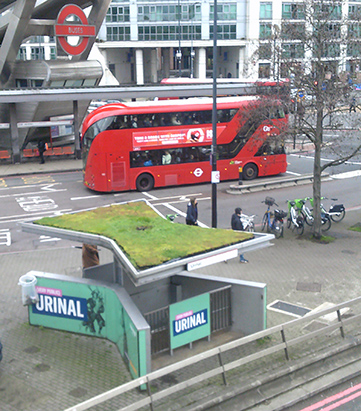London should have a ‘one-stop shop’ for reporting incidents and concerns on public transport, according to the London Assembly Transport Committee.
The Transport Committee has made nine recommendations:
1. The need for consistent messaging across all personal safety campaigns;
2. to set up a ‘simple online mechanism for passengers to report crime and antisocial behaviour’;
3. to assess the relationship between staffing, crime incidents and customer comfort to determine funding and resource allocation;
4. to enhance the accessibility of crime data for transport users;
5. the importance of diversity among police staff, including women, and the importance of continuing to engage with representatives from diverse communities to enable a co-designed approach to transport policies and tailored support;
6. make reporting places that feel unsafe on the transport network easier, so that they can be addressed; and
7. a consistent approach to the retention of CCTV footage and the importance of reliable 4G and 5G coverage across the transport network for reporting incidents.
The committee welcomed the continuing high profile campaigns against sexual harassment by Transport for London (TfL). As for a consistent approach to messaging, the Assembly members noted that responsibility for policing London’s transport network sits across several agencies which have different reporting mechanisms for transport users to submit details of incidents or concerns; the Met looks after buses, the City of London covers the Square Mile, and British Transport Police (BTP) the trains and Tube. As for crime and safety data, TfL had undertaken initial work to develop an interactive dashboard with transport data to go live last year; the committee has asked that it comes in by September.
As for designing out crime of buildings, while the committee heard that the new cross-London Elizabeth Line has ‘big platforms, light and bright stations and high-quality CCTV cameras’, much of the Tube network is Victorian. TfL told the committee that it’s ‘working to upgrade the condition of its CCTV infrastructure, including to improve the availability and retention of CCTV to align with the 31 day retention standard set by the Home Office’, and the committee urged the London Mayor Sadiq Khan to ‘ensure that CCTV retention periods across the TfL network are increased to 31 days as soon as practicable, and accelerate the roll out of 4G and 5G coverage across the whole network to aid real-time reporting’ by passengers’ personal devices.
Separate is a ‘Bus, tram and tube safety in London’ report by the committee, covering driver fatigue.
Background
In November the committee heard from Siwan Hayward, Director of Compliance, Policing, Operations and Security, and Mandy McGregor, Head of Policing and Community Safety at TfL; Alex Smith, Head of Campaigns, London TravelWatch; from BTP Chief Supt Chris Casey, Divisional Commander and Christina Jessah, Acting Detective Chief Superintendent, Operational Command Unit Commander, Roads and Transport Policing Command at the Metropolitan Police.
In a letter to committee chair Keith Prince last month, Siwan Hayward noted that ‘the risk of being a victim of crime on London’s public transport network, which has a rate of 12.8 crimes per million passenger journeys, is much lower than the risk on the national rail network, which has a rate of 22 crimes per million passenger journeys’. As for international comparisons, compared with some other cities, ‘London was mid-ranging in terms of estimated fare evasion levels’.
Photo by Mark Rowe; bus at Vauxhall station, south London.









